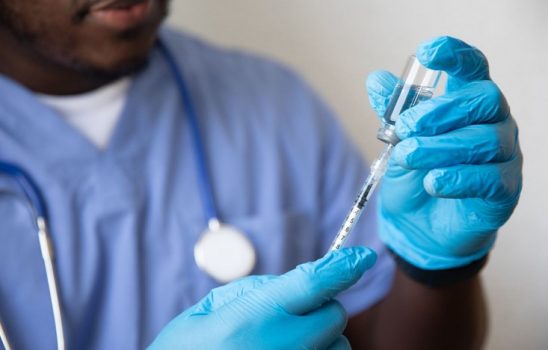The Lagos State Government says it has launched strategic initiatives to address a severe shortage of medical doctors across the state.
This is as the state grapples with a deficit of 33,000 healthcare professionals.
Commissioner for Health, Prof. Akin Abayomi, revealed this during the 2025 ministerial briefing on the Sanwo-Olu/Hamzat administration’s performance, held in Alausa, Ikeja.
Citing World Health Organization (WHO) standards, Abayomi stated that the ideal doctor-to-patient ratio is 1:200.
However, Lagos currently operates at a ratio of 1 doctor to 5,000 patients—far below the recommended level.
With a population exceeding 20 million, the state presently has only about 7,000 doctors.
“Lagos alone is short of 33,000 doctors, while the national deficit stands at over 300,000.
“Approximately 16,000 doctors have left Nigeria in recent years in search of better opportunities abroad,” Abayomi said.
Despite the daunting challenges, the commissioner noted that Lagos is implementing innovative healthcare initiatives aimed at bridging the gap.
- Tinubu to global leaders: Time for climate action is now, not tomorrow
- Sanwo-Olu congratulates GAC member on 89th birthday
- The killings won’t stop, by Funke Egbemode
- Sanwo-Olu’s six-year health revolution: Lagos sets standards in health access, infrastructure, innovation
- Nobody is talking about you, by Tola Adeniyi
With over 18,000 staff across primary, secondary, and tertiary health facilities, the state is actively working to reverse the effects of brain drain.
“We are embracing cutting-edge technology and strategic planning to enhance healthcare delivery.
“We’re seeing increased engagement from medical professionals in the diaspora—some are returning permanently, others intermittently—to contribute to our system,” he added.
Abayomi also emphasized that the state is constructing climate-resilient healthcare infrastructure tailored to Lagos’ unique topography, including densely populated areas and reclaimed land.
He further announced that Lagos hosts the largest cancer treatment center in West Africa, located in Alausa, and that three new secondary hospitals in Ojo, Lagos Island, and Ketu-Ejirin will be inaugurated within the next 12 months.
On the issue of malaria, the commissioner urged residents to test before treatment, noting that 99% of fever cases are not caused by malaria. “Within the next one to two years, we aim to declare Lagos malaria-free,” he said.
Speaking on maternal health, Abayomi expressed concern over the state’s current maternal mortality rate of 430 deaths per 100,000 live births.
“This figure is unacceptable. Lagos has declared zero tolerance for maternal deaths during childbirth,” he stated, adding that the government aims to reduce the figure to 37 per 100,000 live births over the next 20 to 30 years.
The commissioner also reaffirmed the government’s commitment to improving access to healthcare through the expansion of health insurance coverage and the integration of digital health systems.
Plans are underway to connect all health facilities to a central data platform to improve real-time decision-making and policy formulation.
Abayomi concluded by announcing the state’s plan to establish a stand-alone University of Medicine and Health Sciences, aimed at significantly increasing the production of skilled healthcare professionals in Nigeria.


